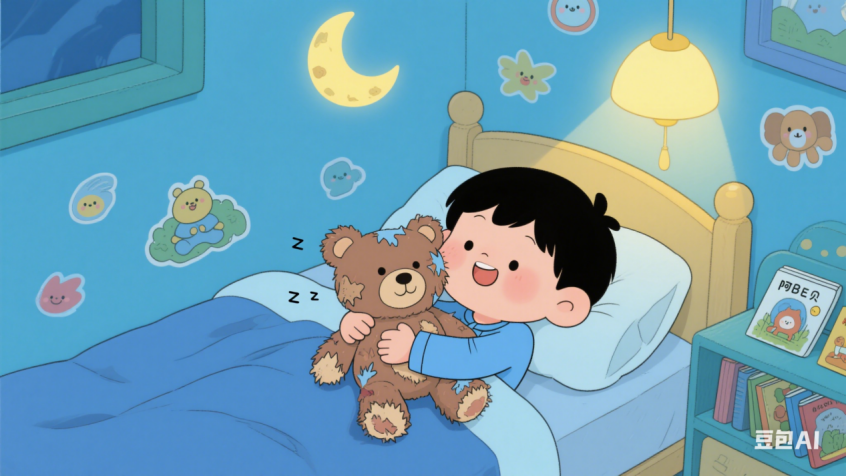你的“阿贝贝”还在吗?

If you search for “A Bei Bei” on Chinese social media, you’ll see photos of old, worn items like broken blankets, torn toy bears, or baby clothes. Though they look ready to be thrown away, these objects are actually ___△___ to their owners. Many people have kept them for over ten years because they bring comfort and happy memories.
The name “A Bei Bei” began when a mother shared her son’s nickname (绰号) for his favorite blanket. Such items are called “transitional (过渡的) objects.” These help children feel safe when facing new situations, like their first day at school.
While most children stop needing these items as they grow up, many Chinese adults still keep their “A Bei Bei.” On social media, people aged 20 to 30 post photos of childhood toys or blankets with funny words: “I’m 25 and still hug my A Bei Bei every night!”
Why do people keep these old items? They are like time machines. A toy animal might remind someone of bedtime stories with grandparents. A blanket could carry memories of family trips. For busy young adults, “A Bei Bei” is a warm friend in a stressful world.
This trend (趋势) has touched millions. On Xiaohongshu, a popular app, the “A Bei Bei” topic has over 670,000 posts. Users share stories about their lifelong “friends”. One wrote, “My ‘A Bei Bei’ still smells like my childhood home. Holding it helps me sleep.”
原创编写 版权所有 侵权必究! 每日更新 个性化阅读 英语飙升!